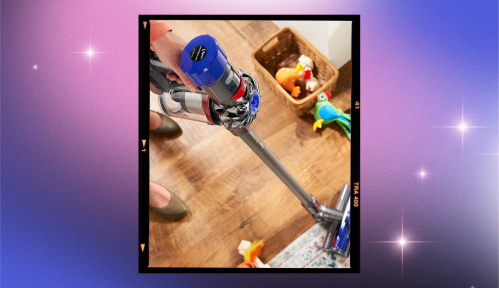Raise your hand if you’ve ever noticed that muscles like your quads or your calves remain sore for days longer than smaller ones like your biceps. Muscle recovery depends on more than just how often you’re working certain parts of your bod. According to Amy Baxter, MD, FAAP, a physician and pain researcher, three factors dictate how fast a muscle can recover: the muscle’s size, the muscle’s function, and its attachments (aka what body parts it’s connected to).
To understand what’s really going on when your body recovers from exertion, know that the key function is isolation of the muscle in question. “The goal of your body in recovery is to isolate that muscle and let it be still so that it has a chance to get better,” says Dr. Baxter. Of course, a number of factors can prolong that process, all of which basically involve moving that muscle. “With an injury, your body wants to freeze that muscle so that lactic acid will come out of injured tissues and stick the muscles together to repair,” she says. “That’s going to rip when you accidentally move that muscle again, which re-injures the muscle and the process starts all over.” Keep scrolling to learn more about why certain muscles take longer to recover than others.
The 3 items that affect muscle recovery
Muscle size
The size of the muscle that’s recovering is the reason why your largest muscles can be sore for days on end. Muscles like your quadricep or gluteal muscles are relatively big, and they’re involved in a lot of different sitting and standing motions, so these will take more time to recover. That said, this doesn’t mean that smaller muscles won’t take a long time to repair. “Ironically in some situations, a really small muscle that has to bear the burden of a whole lot of different activities may take longer to repair as well because it’s more difficult to isolate it,” says Dr. Baxter, which brings us to muscle function.
Muscle function
Muscles that you use every single day will prolong the recovery process—and the more it’s worked (or injured), the longer that process could be. This is why, regardless of how hard you went in your bicep or back workout compared to a lower body one, muscle groups that bear weight are going to take longer to recover. “The size and function of a muscle are basically the job that the muscle’s doing, how frequently it has to do it, and then how big it is,” says Dr. Baxter. Examples of these are situations like plantar fasciitis or tennis elbow, which are small but commonly used muscles.
Muscle attachments
How your muscle is attached to the rest of your body also goes into the length of its repair process. “The general rule is that the better the blood supply is to a muscle, the faster it will heal,” says Brian Hoke, physical therapist and Vionic Innovation Lab member. “The fleshy part of a muscle has a lot of blood flow, so these problems heal pretty routinely. But the tendon that attaches the muscle to a bone often has less blood flow through it, which is why injuries to that part are often slow to recover.” He points to the calf as a prime example of this: When you pull that muscle, it heals much more quickly than an injury to the Achilles tendon that attaches the calf muscle to the heel.
How to speed up recovery
There are recovery techniques you can turn to to help those overused muscle groups repair themselves more quickly. One is—of course—stretching. “Stretching really matters, because you want to gently separate those muscle fibers that are stuck together with lactic acid trying to repair,” says Dr. Baxter. “Gently stretch them before you move the muscle again.” Another expert-approved recovery tool is a percussive therapy device (like the Theragun).
“A recent meta-analysis demonstrates that high frequency vibration for about five minutes on a muscle is equivalent to about 15 minutes of massage or 30 minutes of stretching,” she says, explaining that the vibration can help to separate the muscle fibers without ripping them.
Dr. Baxter’s also a fan of mechanical tape, which is basically kinesiology tape that can subtly change the motion of your muscles (which gives them a chance to repair). “Using mechanical tape on, say, a tennis elbow will change the function because it changes the angle of force, which changes the stresses applied on the muscle,” she says. Choose one or all of these techniques in your recovery regimen and you’re basically hitting the fast-forward button on your muscle repair.
Sign Up for Our Daily Newsletter
Get all the latest in wellness, trends, food, fitness, beauty, and more delivered right to your inbox.
Got it, you've been added to our email list.











